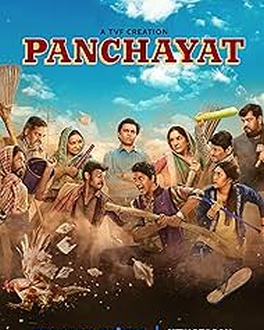Famous script writer Javed Akhtar, of Salim-Javed duo, was going through a tough period. Feeling the need for assistance, he reached out to Sahir Ludhianvi. After a call and a scheduled visit, Sahir noticed the distress on Javed’s face and warmly asked, “Hey young man, how are you feeling? Are you troubled?”
Javed confided that times were tough, and money was running short. He expressed that it would be a huge favor if Sahir could help him find some work. Javed recalls that Sahir Sahab had a peculiar habit – when he was upset, he’d pull a small comb from his back pocket and gently comb his hair. It seemed to untangle his thoughts. That day, he did just that. After pondering for a moment, he said in his usual affable manner, “Certainly young man, let’s see what the fates have in store for you.”
He gestured towards a nearby table and added, “We’ve also faced rough times, young man. Take this for now, let’s see what unfolds.” Javed noticed two hundred rupees on the table. Sahir could have easily handed the money to him directly, but he understood Javed’s feelings and chose this subtle approach. This was the measure of a man who didn’t even glance at you while extending help.
From then on, their meetings became more frequent. Since they collaborated on movies like Trishul, Deewar, and Kaala Patthar, Sahir’s songs were intrinsic to their discussions on stories, dialogues, and songs. In jest, Javed would often tease Sahir, saying, “Sahir Saab! I still have those two hundred rupees of yours. I could give them back, but I won’t.” Sahir would smile, and when others inquired about the two hundred rupees, he’d say, “Ask him.” This playful exchange continued for a long time.
Their encounters continued, marked by mutual respect, as time marched forward. Then, after a considerable stretch, came the fateful date of October 25, 1980. In the late evening, Javed received a call from Sahir’s family doctor, Dr. Kapoor. His voice carried a sense of urgency and sorrow. He conveyed the heartbreaking news that Sahir Ludhianvi was no more, having suffered a heart attack. It was a painful moment for Javed Akhtar.
Upon reaching Sahir’s home as swiftly as possible, Javed witnessed the great luminary of Urdu poetry shrouded in white. He recalls, “Beside him were his two sisters and B.R. Chopra, along with other members of the film industry.” As he drew nearer, his hands trembled. He gently uncovered the sheet, revealing Sahir’s hands resting on his chest. It was a poignant moment, for these were the very hands that had penned such exquisite songs, now rendered cold by fate.
Preparations were made for Sahir’s interment in the Juhu cemetery. The early hours of the morning arrived, and after a night-long vigil, Sahir was laid to rest. This sacred ground also held the resting places of Mohammad Rafi, Majrooh Sultanpuri, Madhubala, and Talat Mahmood. Sahir was buried with all the solemn rites of the Muslim tradition. The attendees departed after a time, but Javed Akhtar remained by the graveside, lost in thought.
After a lengthy contemplation, Javed Akhtar rose and slowly made his way back, eyes glistening with emotion. As he emerged from the Juhu cemetery and approached his waiting car, a voice called out to him. Turning, he saw Ashfaq Sahib, a dear friend of Sahir Sahib. Ashfaq, the husband of the renowned writer Wahida Tabassum, shared a deep bond with Sahir. Clad in a night suit, it was evident he had rushed out upon hearing the news. He approached Javed and said, “Do you have some money? We need to pay the grave builder. I came hastily like this.” Javed, reaching for his wallet, inquired, “Yes-yes, how much is it?” Ashfaq replied, “Two hundred rupees.”
 DesiKudi is an avid entertainment blogger who have been writting about different topics related with Indian Entertainment on major news portals. She has take upon anything to everything from Movies, Web Series, TV Shows, etc.
DesiKudi is an avid entertainment blogger who have been writting about different topics related with Indian Entertainment on major news portals. She has take upon anything to everything from Movies, Web Series, TV Shows, etc.





 2025 Year Roundup OTT Indian Web Series
2025 Year Roundup OTT Indian Web Series 2025 Year Roundup Movies
2025 Year Roundup Movies On the Terrace with Sharma Ji
On the Terrace with Sharma Ji Jolly LLB 3 (2025)
Jolly LLB 3 (2025) Manoj Kumar (1973 – 2025)
Manoj Kumar (1973 – 2025)
Leave a Reply